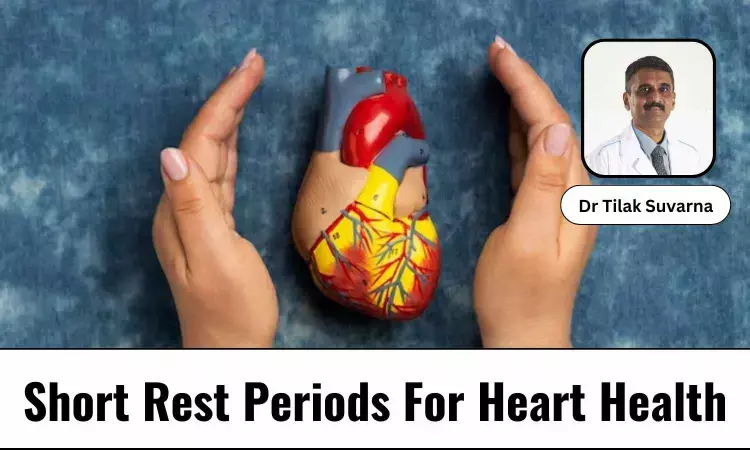- Home
- Medical news & Guidelines
- Anesthesiology
- Cardiology and CTVS
- Critical Care
- Dentistry
- Dermatology
- Diabetes and Endocrinology
- ENT
- Gastroenterology
- Medicine
- Nephrology
- Neurology
- Obstretics-Gynaecology
- Oncology
- Ophthalmology
- Orthopaedics
- Pediatrics-Neonatology
- Psychiatry
- Pulmonology
- Radiology
- Surgery
- Urology
- Laboratory Medicine
- Diet
- Nursing
- Paramedical
- Physiotherapy
- Health news
- Fact Check
- Bone Health Fact Check
- Brain Health Fact Check
- Cancer Related Fact Check
- Child Care Fact Check
- Dental and oral health fact check
- Diabetes and metabolic health fact check
- Diet and Nutrition Fact Check
- Eye and ENT Care Fact Check
- Fitness fact check
- Gut health fact check
- Heart health fact check
- Kidney health fact check
- Medical education fact check
- Men's health fact check
- Respiratory fact check
- Skin and hair care fact check
- Vaccine and Immunization fact check
- Women's health fact check
- AYUSH
- State News
- Andaman and Nicobar Islands
- Andhra Pradesh
- Arunachal Pradesh
- Assam
- Bihar
- Chandigarh
- Chattisgarh
- Dadra and Nagar Haveli
- Daman and Diu
- Delhi
- Goa
- Gujarat
- Haryana
- Himachal Pradesh
- Jammu & Kashmir
- Jharkhand
- Karnataka
- Kerala
- Ladakh
- Lakshadweep
- Madhya Pradesh
- Maharashtra
- Manipur
- Meghalaya
- Mizoram
- Nagaland
- Odisha
- Puducherry
- Punjab
- Rajasthan
- Sikkim
- Tamil Nadu
- Telangana
- Tripura
- Uttar Pradesh
- Uttrakhand
- West Bengal
- Medical Education
- Industry
The Power of Breaks: How Short Rest Periods Can Safeguard Your Heart - Dr Tilak Suvarna

In the fast-paced rhythm of modern life, taking breaks might seem counterintuitive to achieving goals. However, a 2021 World Health Organization (WHO) study sheds light on the detrimental impact of overworking. Compared to those working 35–40 hours a week, individuals working 55 or more hours a week face a staggering 35% higher risk of experiencing a stroke and a 17% higher risk of dying from ischemic heart disease.
This compelling data emphasizes the critical role that short rest periods play in safeguarding the most vital organ in our bodies – the heart. While physical activity has long been heralded for its cardiovascular benefits, the significance of incorporating intermittent periods of rest cannot be overstated.
Understanding the physiological underpinnings of this phenomenon is crucial in appreciating its importance. The intricate balance of the autonomic nervous system plays a pivotal role in this narrative. Prolonged periods of continuous activity can lead to an overactivation of the sympathetic nervous system, triggering the well-known "fight or flight" response.
The persistent stimulation of this response can subsequently elevate blood pressure, increase heart rate, and unleash a cascade of stress hormones, all of which collectively strain the heart. Introducing intermittent breaks serves as a reset button, allowing the parasympathetic nervous system, responsible for the body's rest and digestion functions, to regain control and restore equilibrium.
Beyond its cardiovascular benefits, these short respites contribute significantly to overall well-being. Taking these periodic breaks can also lead to enhanced mental clarity, increased productivity, and improved mood. This holistic approach emphasizes the interconnectedness between physical and mental health, underscoring the pivotal role of balance in achieving optimal wellness.
Taking breaks is also important as maintaining intense focus for hours is not feasible. While there are no strict rules for when to take these breaks, incorporating them into our work routine can be highly beneficial. These respites allow us to recharge our focus, step away from our screens, and come back refreshed.
Walking for a few minutes, power nap, stretching a bit, or any other form of creative expression or meditation breaks offer a path to relaxation and stress relief amidst the chaos of your workday.
The practical implementation of this principle calls for a paradigm shift in the traditional work culture, encouraging employers to endorse and support regular intervals of rest during the workday. Incorporating scheduled breaks into the daily routine not only enhances employee well-being but also has the potential to improve overall productivity and creativity.
Additionally, individuals should strive to adopt healthier habits in their daily lives by consciously allotting time for relaxation and rejuvenation.
Moreover, the importance of breaks extends beyond the confines of the professional realm. Integrating moments of respite into our personal lives is equally crucial. With the pervasive influence of technology blurring the boundaries between work and personal time, it becomes imperative to consciously disconnect and allocate time for leisure and self-care.
Engaging in activities that promote relaxation, such as hobbies, socializing with loved ones, and pursuing interests outside of work, contributes to a more fulfilling and well-rounded life.
Embracing a lifestyle that values the synergy of activity and rest is not only a step towards a healthier heart but also a testament to our commitment to living a balanced and fulfilling life. Prioritizing short breaks throughout the day can significantly contribute to long-term heart health and overall well-being.
By recognizing the importance of rest in the pursuit of productivity, we can foster a culture that promotes both individual and collective flourishing. In the demands of modern life, focus on not overlooking the transformative potential of taking a moment to pause and refresh, for a healthy heart.
Dr Tilak Suvarna MBBS, DNB (General Medicine), DNB (Cardiology) is a Senior Interventional Cardiologist at Asian Heart Institute, Mumbai. For the past 37 years, Dr Tilak Suvarna has worked as a Cardiology Doctor and gained proficient skills and knowledge in the segments. He is a well-known member of the Accreditation Committee, National Accreditation Board for Hospitals. Some of the treatments offered by Dr Tilak Suvarna are Coronary Angiography and Coronary Angioplasty.


